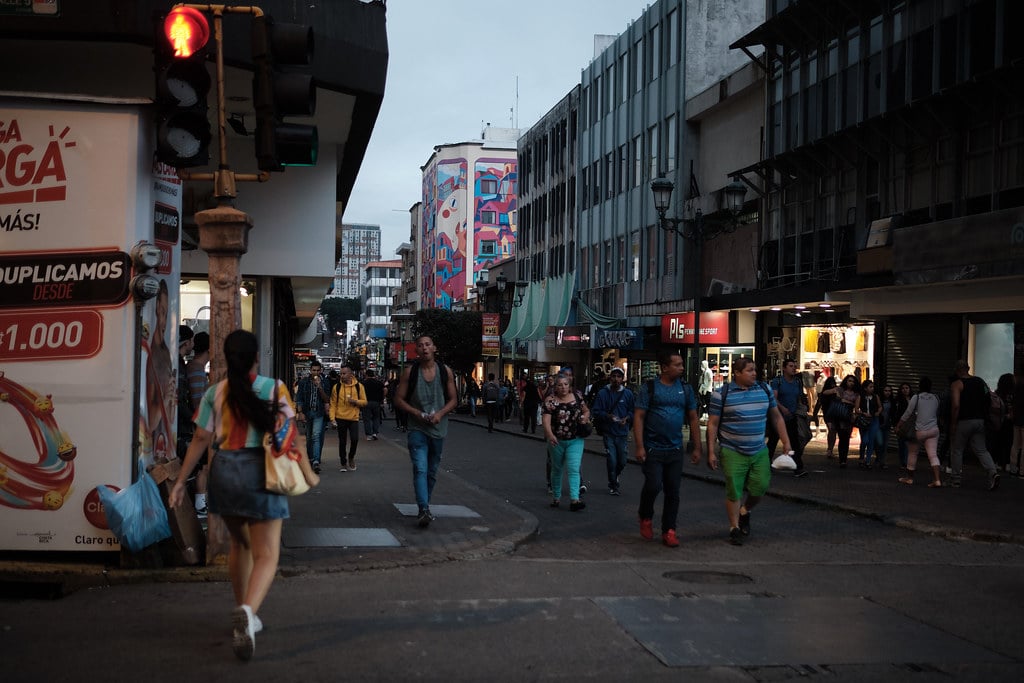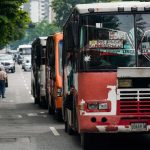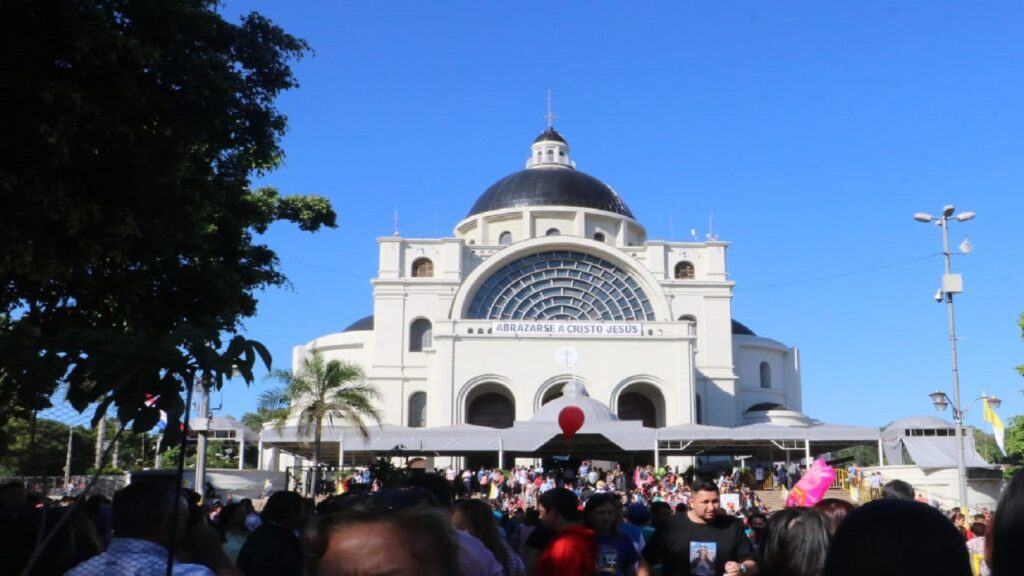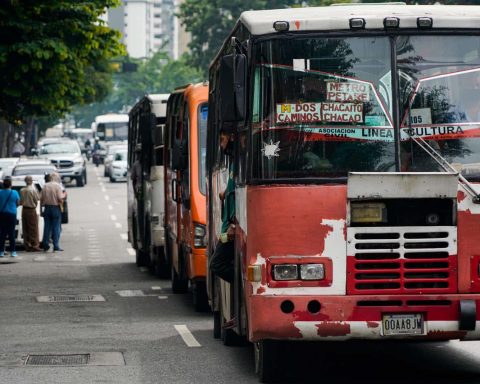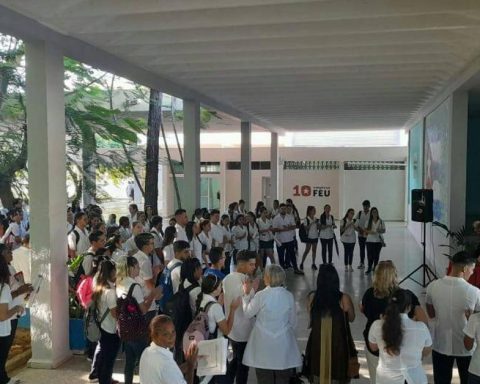The reforms to immigration and refuge policy approved this November 30 by the president of Costa Rica, Rodrigo Chaves, establish “a series of limitations and restrictions that violate already acquired rights” of people who need international protection, specialists in migration issues interviewed with the program agree. This weekwhich is broadcast this Sunday through Facebook and YouTube, due to the television censorship of the Ortega regime.
“It restricts your right to mobilization, so much so that it prohibits you from traveling to a third country. Many of the people who are settled in Costa Rica are leaders, human rights defenders, who are being summoned to other international spaces and forums to continue the processes of denouncing the Nicaraguan dictatorship. Secondly, there are a series of restrictions in the granting of refugee status that violates the Refugee Convention itself,” he said. Adilia Eva Solis, President of the Center for the Social Rights of Migrants (Cenderos) and one of the panel participants.
Among the main changes of these reforms is that the work permit for refugee applicants will no longer be extended expeditiously, but through a new procedure before the migration offices.
In addition, any new refugee application will be presented in person within one calendar month from the day the person enters Costa Rica, without the need to request an appointment. Applicants will also not be able to go to a third country. If you do, your process will be archived. Those who already have a work permit will be renewed only if the person is registered with the Costa Rican Social Security Fund (CCSS).
According to President Chaves, these measures are necessary to prevent the Costa Rican refuge system from being misused by economic migrants. At the same time, he highlighted the lack of financial support from the international community to attend to the thousands of asylum seekers, the majority being Nicaraguans fleeing the repression of the regime by Daniel Ortega and Rosario Murillo. They are joined by Cubans and Venezuelans, mainly.
“These measures, far from contributing to social peace, to the social integration of foreigners who live or migrants in flux or people even in poverty, what they are doing is fueling xenophobic behaviors and manifestations,” he warned. Solis.
New procedure for work permits
One of the obstacles for new refugee applicants in Costa Rica is that they must complete a new procedure at the migration offices in order to obtain a work permit. Until this Wednesday, November 30, according to Daguer Hernandez, former deputy director of the Directorate of Migration and Aliens of Costa Rica and who also participated in the panel of This week, applicants for international protection were given their card and work permit expeditiously; the latter entered into force three months after its issuance.
This step freed the bureaucracy from a system that was beginning to become saturated with the tens of thousands of Nicaraguans who began to arrive in search of refuge, after the political violence unleashed by Daniel Ortega to crush the Civic rebellion of 2018.
The former public official points out that at the time they did not have the human and material resources to meet the demand, but it will be necessary to see if the current administration has the amount of resources, officials, time and offices to manage both procedures -refugee applications and the work permit – because, indeed, labor migrants will continue to enter in refugee status.
“That will not end, because what needs to be resolved is the issue of the other side, the issue of labor migration; It’s not a shelter issue. It is a problem of labor migration and what we have right now with these policies is a loss of focus on what the problem is,” said Hernández.
He also pointed out that the authorities are expected to comply with the rest of the deadlines to effectively resolve refugee applications, now that a maximum of one calendar month has been established for a citizen to manage their immigration status.
For Solís, making the renewal of the work permit conditional on the person’s listing in the Costa Rican Social Security system is “absurd”, because it implies that the citizen has to have a formal job, but if he does not have a valid permit, how is he going to get a job contract, questioned the specialist.
Immigration reforms should not be retroactive
Gonzalo Carrión, a member of the Nicaragua Nunca Más Human Rights Collective, assures that they received the changes in Costa Rican immigration policy with concern. He asserts that from a legal perspective, the reforms should not be retroactive; that is, they would directly affect only new refugee applicants. However, the decrees do not clarify this point.
These reforms, mainly the work permit, could generate greater precariousness in tens of thousands of Nicaraguans, warns Carrión. The situation of many nationals seeking refuge is not the best, in part, due to the economic consequences caused by the pandemic, to which these new restrictions are now added, he said.
According to the official statement “to date, the General Directorate of Migration and Aliens has received 222,056 refugee applications since 2018, of which 172,689 are still pending resolution. 90% of the applications correspond to Nicaraguans who have been forced to leave due to the sociopolitical crisis.
“I think there are serious repercussions, severe repercussions, very unfortunate and above all for the Nicaraguan population, because they start from a lack of knowledge and an adequate analysis of the conditions and the context. There is such a level of persecution and massive deterioration of rights that anyone feels threatened,” Solís stressed during the interview for This week.
“For the mere fact of dissenting in Nicaragua, you are persecuted, but by ignoring that reality and taking almost summary measures as established in these reforms, I tell you that there will be serious consequences for those people who are going to be deny refuge,” he added.
Obstacles for special category
The recent reforms also create “the Temporary Special Category for Nationals of Cuba, Nicaragua and Venezuela, which would come into force on March 1, 2023.” People of these nationalities make up 96% of the refuge claimantsaccording to Chaves said.
Under this classification, said citizens They will be able to work for two years, but they must give up the refugee application, register with social security and demonstrate that they have no criminal record in their country. In addition, as long as these people have made their refugee application between January 1, 2010 and September 30, 2022, and have not been in their country of origin during that period.
Daguer Hernández considers that the measure is adequate and similar to the one that was promulgated during the government of President Carlos Alvarado, with the limitation that they now request the presentation of the apostilled criminal record from their country of origin, and if they cannot access it, they will not can apply to your migratory regularization. He points out that there are other security alternatives to compensate for this requirement, since people of these nationalities in refugee status find it very difficult to obtain the required documentation.
“For Nicaraguan people who do not have reasons for political persecution, it is easy to obtain a criminal record document, but for a person who has a relationship of persecution, it will not be easy,” said Hernández.
